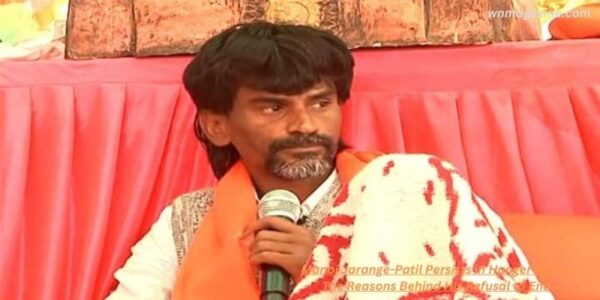Manoj Jarange-Patil Persists in Hunger Strike: The Reasons Behind His Refusal to End
2 min read
Manoj Jarange-Patil Persists in Hunger Strike: The Reasons Behind His Refusal to End

Manoj Jarange-Patil Persists in Hunger Strike: The Reasons Behind His Refusal to End
“Manoj Jarange-Patil, a dedicated Maratha activist advocating for reservations, continues his hunger strike in his hometown of Jalna, despite the Maharashtra government’s prompt approval of a special session to pass a bill granting reservations to the Maratha community. While he appreciates the decision to reserve quotas for the majority Maratha population, Jarange-Patil expresses concerns about the bill’s potential legal challenges.
Also Read: Wellhealth Ayurvedic Health Tips
The Maratha Reservation Bill, passed by both houses of the Maharashtra legislature, aims to exceed the 50% cap by providing a 10% quota in jobs and education for Marathas. This bill is reminiscent of the Socially and Educationally Backward Classes Act, 2018, introduced during the Devendra Fadnavis government, which was invalidated by the Supreme Court due to the 50% cap.
Jarange-Patil remains steadfast in his hunger strike due to the failure of a previous OBC bill in 2021 and its limited scope, benefiting only those with Nizam-era documents like Kunbi certificates. He argues that the government’s current reservation plan will only benefit a small fraction of Maratha people, leaving the majority without reservations.
Expressing his demand for the implementation of Sage Soyare, Manoj Jarange -Patil emphasizes the need for fair representation. He rejects further medical treatment, removing the intravenous drip from his hand. In response, Minister for Maharashtra Shambhuraj Desai asserts that the government has addressed Jarange-Patil’s concerns and those of the Maratha community. The government will consider objections before making a final decision, urging an end to the protest.
This marks the third attempt by the Maharashtra Legislature to secure reservations for the Maratha community, with the current bill receiving unanimous approval. Based on a report from the Maharashtra State Commission for the Backward Classes (MSCBC),
Manoj Jarange the bill justifies the reservation beyond the 50% cap, citing the unique challenges faced by the Marathas, who constitute 28% of Maharashtra’s population. The proposed 10% quota is in addition to the state’s existing 62% reservation, encompassing a 10% quota for economically disadvantaged sections (EWS) and a remaining 52% caste-based quota.”
Also Read: well health tips in hindi wellhealth